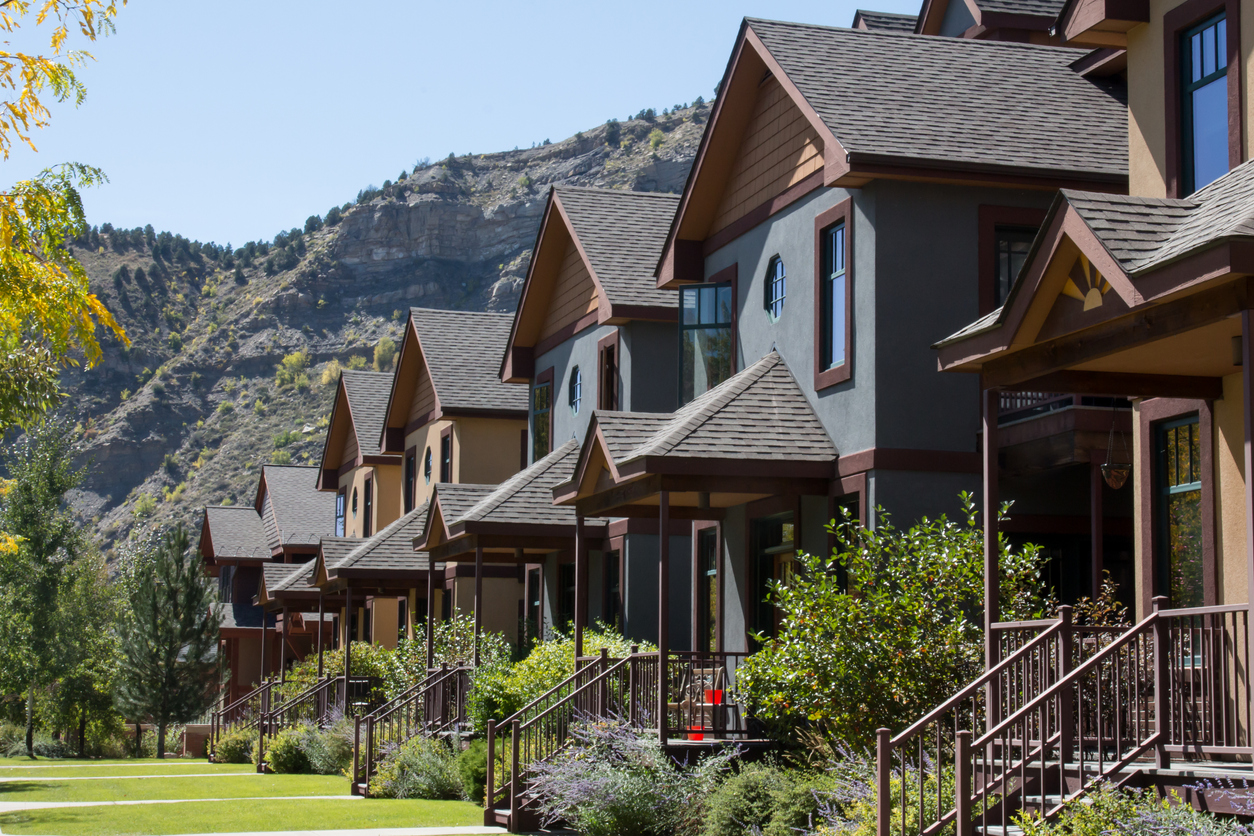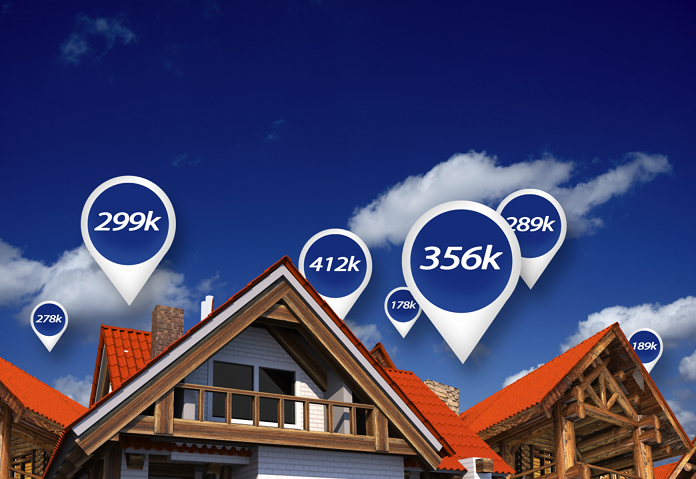Big Bounce

Seventy-five major metro markets have seen home prices bounce back to above their pre-recession peaks.
Metro Denver has seen the biggest bounce with home values 91% above its previous high in 2007 , according to the Home Price Recovery Index from HSH.com.
“Aside from routinely strong home price appreciation, it’s important to know that the Denver metro’s housing ‘bust’ in 2008 was relatively short and shallow,” said Keith Gumbinger, the report’s author.
The peak-to-trough for home values was only three years long and the total decline in value was just under 8 percent in Metro Denver, he said.
By contrast, a half-dozen large metros have seen home prices more than double from their lows and still not reach the old highs. On that list are Las Vegas, Sacramento, Calif, and Cape Coral, Fla.
The Question of the Day

As we are helping people understand their new property assessments and putting together information so that they may protest their new valuation, here is the most common question we hear…
Did my property really go up that much?
Here are some stats that will help you answer that question.
First, you need to know that property assessments are done by the County every two years. So, as you look at how much your property increased in value according to the County, keep in mind that this increase is over a two-year period.
Next, it will help you to know how much our markets increased, on average, over the last two years. This data comes from our most trusted source, the Federal Housing Finance Authority.
Two Year Appreciation:
• Metro Denver = 18.65%
• Larimer County = 17.60%
• Weld County = 22.31%
• Boulder County = 16.28%
If you have questions about your new valuation or how to protest your property’s assessment, we would be happy to help. Just reach out and let us know.
Condo Cyclone

While the “Bomb Cyclone” closed roads and schools over the last two days, the “Condo Cyclone” is opening new opportunities for first-time buyers.
What’s the “Condo Cyclone” you ask. It’s the proliferation of multi-family inventory that has come on the market up and down the Front Range.
Compared to last year, multi-family inventory which includes town-homes and condominiums, has increased…
• 79% in Metro Denver
• 34% in Larimer County
• 45% in Weld County
This is terrific news for the market overall, as inventory has been unusually low for several months. It’s especially terrific news for first-time buyers who need this type of product as a stepping stone to home ownership.
What we notice is a $170,000 to $130,000 difference in average price between a single-family home and a multi-family home in Front Range markets.
Specifically, here’s the spread between multi-family and single-family average price:
• $349,801 vs. $512,312 in Metro Denver
• $312,493 vs. $469,294 in Larimer County
• $237,645 vs. $370,027 in Weld County
So as we dig out from the “Bomb Cyclone” we can be happy for the “Condo Cyclone” which brings more affordability and opportunity to our markets!
______________________________________________________________________
Just Released (a new resource site just for you…)
• Want to see the latest market trends?
• Curious to see the process of buying or selling a home?
• Interested in what it takes to own investment property?
• Be sure to visit www.ColoradoLivingBlog.com
The Whole Story
Metro Denver has 2.1 months of inventory on the market. This means that, at the current pace of sales, it would take just over 2 months to sell every single-family home currently listed for sale.
But that’s not the whole story because inventory levels vary drastically depending upon the price of the home.
When we take a closer look at months of inventory broken down by price range this is what we see:
• Under $400,000 = 0.9 months
• $400,000 to $500,000 = 1.8 months
• $500,000 to $750,000 = 3.1 months
• $750,000 to $1,000,000 = 4.2 months
• Over $1,000,000 = 7.7 months
These numbers represent great news for move-up buyers because they can sell in a strong market and potentially move up to a market that is market that is not as strong.
Below is a short video with a recap of our annual Market Forecast presentation!
How’s 2019?
A lot of our clients are asking how 2019 is starting off.
Here’s one thing we notice…
There are more homes to choose from, which is great news for buyers.
In January alone 4,821 homes came on the market in Metro Denver.
That is a 14% increase compared to one year ago.
At our annual Market Forecast, we predicted a more balanced market in 2019, so far it looks like we are trending that way.
________________________________________________________________________________________
Below is the recap of our Denver Annual Market Forecast!
Our Forecast
This past Wednesday and Thursday evenings we had the pleasure of hosting our annual Market Forecast events in Denver and Fort Collins.
Thank you to the 700 people who attended. We appreciate your support!
In case you missed the events, here are some highlights including our forecast for price appreciation in 2019:
• In 2018 Prices went up:
o 8% in Fort Collins
o 8% in Loveland
o 8.5% in Greeley
o 8% in Metro Denver
• Inventory is (finally) showing signs of increasing:
o Up 25% in Northern Colorado
o Up 45% in Metro Denver
• There are distinct differences in months of inventory across different price ranges = opportunity for the move up buyer.
• There are several reasons why we don’t see a housing bubble forming:
o New home starts along the Front Range are roughly 60% of pre-bubble highs 14 years ago.
o Americans have more equity in their homes than ever, $6 Trillion!
o The average FICO score of home buyers is significantly higher than the long-term average.
o The home ownership rate is back to the long-term average.
• Our 2019 Price Appreciation Forecast:
o 6% in Fort Collins
o 6% in Loveland
o 7% in Greeley
o 6% in Metro Denver
If you would like a copy of the presentation, go ahead and reach out to us. We would be happy to put it in your hands!
More Choices

Great news for buyers! There are more homes to choose from. It seems there is relief from the days of drastically low inventory levels.
Compared to a year ago, residential inventory levels are up:
• 9% in Northern Colorado (Larimer & Weld Counties)
• 45% in Metro Denver (wow!)
________________________________________
You can get many more fun facts like these plus get our predictions on the 2019 market by joining our annual Market Forecast. Just click the link below!
https://www.eventbrite.com/o/windermere-real-estate-12011801121
Good News for Buyers

Here’s some good news for buyers who have been waiting for more selection…
No need to wait any more because the numbers show that more new listings are hitting the market compared to the recent past.
In Metro Denver, the number of homes for sale is up 14.42% compared to last year.
That equates to 800 more homes to choose from.
Start spreading the news!
Did You Know?

Did you know the average price appreciation over the long term, according to the Federal Housing Finance Authority (who’s been studying this for 40+ years) is…
· 5.63% per year for Metro Denver
· 5.35% per year for Larimer County
· 4.5% per year for Weld County
If you want to be totally clear on all the stats, facts and trends in Colorado real estate so that you know what the future value of your home looks like, watch this video.
This is a complimentary service for our clients and friends.
Colorado Real Estate Market Update


The following analysis of the Metro Denver & Northern Colorado real estate market is provided by Windermere Real Estate Chief Economist Matthew Gardner. We hope that this information may assist you with making better-informed real estate decisions. For further information about the housing market in your area, please don’t hesitate to contact me.
ECONOMIC OVERVIEW
It’s good news for the state of Colorado, which saw annual employment grow in all of the metropolitan markets included in this report. The state added 63,400 non-agricultural jobs over the past 12 months, an impressive growth rate of 2.4%. Colorado has been adding an average of 5,300 new jobs per month for the past year, and I anticipate that this growth rate will continue through the balance of 2018.
In February, the unemployment rate in Colorado was 3.0%—a level that has held steady for the past six months. Unemployment has dropped in all the markets contained in this report, with the lowest reported rates in Fort Collins and Denver, where 3.1% of the labor force was actively looking for work. The highest unemployment rate was in Grand Junction, which came in at 4.6%.
HOME SALES ACTIVITY
- In the first quarter of 2018, there were 11,173 home sales—a drop of 5.6% when compared to the first quarter of 2017.
- With an increase of 5.3%, home sales rose the fastest in Boulder County, as compared to first quarter of last year. There was also a modest sales increase of 1.2% in Larimer County. Sales fell in all the other counties contained within this report.
- Home sales continue to slow due to low inventory levels, which were down 5.7% compared to a year ago.
- The takeaway here is that sales growth continues to stagnate due to the lack of homes for sale.

HOME PRICES

- Strong economic growth, combined with limited inventory, continued to push prices higher. The average home price in the markets covered by this report was up by 11.7% year-over-year to $448,687.
- Arapahoe County saw slower appreciation in home values, but the trend is still positiveand above its long-term average.
- Appreciation was strongest in Boulder County, which saw prices rise 14.8%. Almost all other counties in this report experienced solid gains.
- The ongoing imbalance between supply and demand persists and home prices continue to appreciate at above-average rates.

DAYS ON MARKET
- The average number of days it took to sell a home dropped by three days when compared to the first quarter of 2017.
- Homes in all but two counties contained in this report took less than a month to sell. Adams County continues to stand out where it took an average of just 17 days to sell a home.
- During the first quarter, it took an average of 27 days to sell a home. That rate is down 2 days from the fourth quarter of 2017.
- Housing demand remains strong and would-be buyers should expect to see stiff competition for well-positioned, well-priced homes.

CONCLUSIONS
 This speedometer reflects the state of the region’s housing market using housing inventory, price gains, home sales, interest rates, and larger economic factors. In the first quarter of 2018, I have left the needle where it was in the fourth quarter of last year. Even as interest rates trend higher, it appears as if demand will continue to outweigh supply. As we head into the spring months, I had hoped to see an increase in the number of homes for sale, but so far that has not happened. As a result, the housing market continues to heavily favor sellers.
This speedometer reflects the state of the region’s housing market using housing inventory, price gains, home sales, interest rates, and larger economic factors. In the first quarter of 2018, I have left the needle where it was in the fourth quarter of last year. Even as interest rates trend higher, it appears as if demand will continue to outweigh supply. As we head into the spring months, I had hoped to see an increase in the number of homes for sale, but so far that has not happened. As a result, the housing market continues to heavily favor sellers.

Matthew Gardner is the Chief Economist for Windermere Real Estate, specializing in residential market analysis, commercial/industrial market analysis, financial analysis, and land use and regional economics. He is the former Principal of Gardner Economics, and has more than 30 years of professional experience both in the U.S. and U.K.
 Facebook
Facebook
 X
X
 Pinterest
Pinterest
 Copy Link
Copy Link




